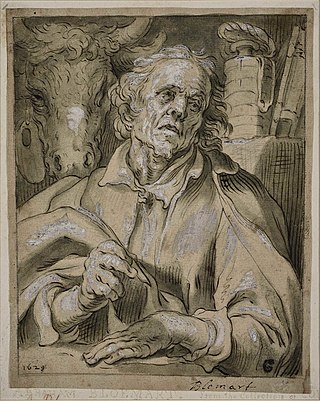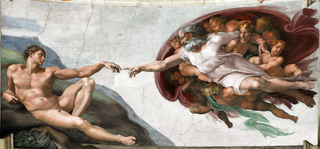 Mort de Roland, depicting the death of Roland in The Song of Roland . One part of the story tells how Roland's best friend Oliver died with him. | |
| Pronunciation | /ˈɑːlɪvər/ |
|---|---|
| Gender | masculine |
| Language(s) | English |
| Origin | |
| Language(s) | Old French and English |
| Meaning | From Olivier, an Old French form of the Germanic name Alfher (literally "elf army/warrior") |
| Region of origin | Medieval France, Medieval England |
| Other names | |
| Nickname(s) | Ollie |
| Usage | English, German, Swedish, Norwegian, Danish, Finnish, Estonian, Italian, Russian, Catalan, Serbian, Croatian, Macedonian, Czech, Slovak, Spanish |
| Related names | Olivia, Olive, Olivier, Olivér, Oliwer, Oliwier, Oliviero, Óliver |
Oliver is a masculine given name of Old French and Medieval British origin. The name has been generally associated with the Latin term olivarius, meaning "olive tree planter", [1] [2] or "olive branch bearer" [3] Olive is a symbol of hope, so this name literally means - ''the one who carries hope''. [4] Other proposed origins include the Germanic names *wulfa- "wolf" and *harja- "army"; [5] the Old Norse Óleifr (Ólaf); a genuinely West Germanic name, perhaps from ala- "all" and wēra "true" (possibly cognate with Álvaro); the Anglo-Saxon Alfhere; [6] and the Greek name Eleutherios.
Contents
- Variants
- People with the given name "Oliver" include
- A
- B
- C
- D
- E
- F
- G
- H
- I
- J
- K
- L
- M
- N
- O
- P
- Q
- R
- S
- T
- U
- V
- W
- Y
- Z
- Fictional characters
- See also
- References
Oliver is one of Charlemagne's retainers in the 11th-century Song of Roland . The name was introduced to England by the Normans, where its form was possibly influenced again by its Anglo-Saxon cognate Alfhere. [7] It was commonly used in medieval England, but became rare after the Restoration because of the unpopularity of Oliver Cromwell. The name was revived in the 19th century, possibly inspired by the title character of Charles Dickens' Oliver Twist (1838). Pet forms of the English given name include Ollie [7] and, in medieval times, Noll. [8] [ circular reference ]
Modern variants include French Olivier, Hungarian Olivér, Indonesian Oliver, Irish Oilibhéar or Oilibhéir, Scottish Gaelic Oilvreis, Portuguese Olívio, [9] Italian Oliviero, Spanish Óliver, and Polish Oliwier or Oliwer.
In 2015, Oliver was the most popular given name for boys in Australia. [10] From 2013 to 2017, Oliver was the most popular given name for baby boys born in England.
In 2022, in the United States, the name Oliver was given to 15,076 boys, making it the third most popular name. [11] Also in 2022, it was the sixth most popular name given to boys in Canada. [12]
The name Oliver is on the list of the 50 most common male names in Croatia. In 2023, 116 Olivers were born in Croatia, and according to the latest census, there are currently 1,719 people living in Croatia with that name. [4]



